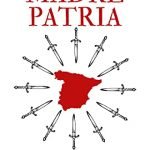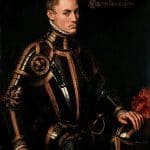
Contents
The aid of Spain to the United States, unknown!
The aid of Spain was very important from the beginning. At that time Spain was the largest empire in the world. The Spanish precaution of not bringing troops and keeping aid to the American patriots secret has left little documentation, but enough.
+ Spain and Independence U.S
Their help was decisive economically, militarily and logistically. Without this great help, the independence of the 13 colonies would not have been possible at least at that time. Only Spain and France could stop England.
Letters found in the Library of the North American Congress and in the Spanish Archive of the Indies, demonstrate that Spanish help in the decisive moments of its War of Independence against England

During the years (1776-1779) Spain helps North America. Spain defeated England on land and at sea
Spain the great empire of the time surrounds the 13 colonies
Spanish economic and logistical aid, decisive
Material supplies and money transfers at key moments, such as the Battle of Yorktown
Bernardo de Gálvez and his troops

Even the English were defeated by Gálvez’s troops. All the British bases in the Gulf of Mexico were taken militarily, the Bahamas Islands were occupied and when the island of Jamaica was about to be invaded, peace was signed.
In the years (1776-79) Spain secretly helps
Support for the American patriots of the 13 English colonies, progressively. During the period of years (1776-1779) Spain secretly finances, helps and arms the North American patriots.
The letters sent between the main leaders and participants in the War of Independence, such as George Washington, Henry Patrick, General Rochambeau etc, corroborate it.
A secret that changed war and history
The Spanish precaution not to bring troops directly to the soil of the 13 English colonies and to keep aid to the American patriots secret has left little documentation.
Even so, documents found in the Library of the North American Congress and in the Archivo de Indias in Spain, demonstrate that help.
Very important collaboration from the beginning
And since the declaration of war on England in 1779, it was decisive decisive
Once war was declared against England, Spain bet very strongly for the Independence of the 13 colonies. In Luisiana Bernardo de Gálvez. he seized all the areas controlled by the English both on the Gulf Coast of Mexico and on the Mississippi River. In this way he prevented the British from preventing the supply of the North American rebels, while Spain used the river to supply all kinds of aid.
The Spanish Empire was the largest in the world at the time

The Empire had possessions on all continents.
At that time also the territories of Louisiana was controlled by Spain. And from New Orleans, all kinds of aid were sent across the Mississippi River and the Ohio to the 13 colonies revolted against England.
Minister Aranda sends 2,000,000 pounds
In 1776, in addition to financial support, he sent a shipment of arms and supplies for the rebel army, so that it could withstand the English pressure.
Not only did it start early, sending aid to the independentistas. The 2,000,000 pounds were used for the expenses of the army of the 13 colonies. But there were also many other shipments of weapons and military supplies.
The secrecy with which these shipments were made, to avoid England finding out, and to save precious time, has made it difficult to calculate the exact amount sent. On many occasions, the information was falsified to make it appear that the aid was less. But the amount and support was enormous for the time.
Spain sends supplies, and weapons
Send military weapons for the Americans to win the war
Shipments of arms and military equipment were sent to the North American independentistas through the Spanish commercial network of Gardoqui.
One of those shipments consisted of: 30,000 carabiners, more than 200 guns, 12,000 grenades, 4,000 tents, 30,000 bayonets, 30,000 uniforms, thousands of rounds for the carabiners and 300,000 pounds of gunpowder.
The merchant Gardoqui, Redón, Miralles etc.
Commercial network and spy network, to carry war material
In the first moments of the war, a network of Spanish informants was created taking advantage of the commercial network, and even a maritime company was created to conceal the shipments. These were made at first to Boston and later to other ports.
Spain dresses up Washington’s army
In 1778, Cloths from Alcoy were sent for North American uniforms.
The Spanish commissioner Juan de Miralles explained to George Washington the great help that Spain could give unofficially, since there was still no declaration of war with England. It began with uniforms, cloths, medicines, muskets, cannons and ended with the Declaration of War on England.
The North American rebels received a shipment containing the materials they urgently needed. Some were basic like warm clothes and uniforms. The port of New Orleans was received through what would be the most common conduit.
Alcoy factories from Valencia sent 18,000 rods of red woolen cloth, 9,000 rods of blue cloth, 1,700 rods of white cloth, 3,000 rods of white cloth.
Thanks to this, many of George Washington’s soldiers had uniforms made with these Spanish cloths sent mainly from Alcoy in the province of Alicante.
A huge and decisive Spanish economic support
8,000,000 pesos in credit to Oliver Pollock
The Spanish control of New Orleans and the Mississippi and Ohio basin, caused that this route was used for the shipment of supplies. To facilitate this aid, Spain gave a credit of 8,000,000 pesos to purchase the necessary materials for the North American troops.
Spain also helped France
French troops supplied by Spain
Although Spain refused to move troops within the territory of the 13 colonies neither before nor after the declaration of war on England, it financed key moments in the War of Independence. She totally defeated the English on the Mississippi and in the Gulf of Mexico to Florida.
The decisive role that Spain played in the war has been ignored for 200 years. The official history of the country was limited to telling mainly the Anglo-Saxon history.
500,000 pesos from Mexico
Help from New Spain
The territories of New Spain financed the American War of Independence. Even in the churches, a voluntary tax of 2 pesos per soldier or Spanish neighbor and 1 peso per Indian was requested.
Unfortunately, in less than 59 years, the Americans took control of the north of these territories, which had helped them to be a nation.
1,000,000 pesos for Yorktown
Bankruptcy of the French and Patriots
The desperation with which George Washington asked the French General for help
Rochambeau, seeing how his army crumbled in Yorktown, had a response from New Spain again.
Rochambeau asked Count Grasse for help that I cannot give. However, he sent St. Simon to get money in Cuba and the society of Havana responded in solidarity with an enormous amount for the time 1,000,000 gold pesos.
The battle of Yorktown financed by Spain
Faced with the despair of the Americans and the French, they had to ask Spain
The arrival of Spanish funding solved problems for both the US Army and the French Army.
George Washington who was able to pay for the delays of his soldiers and get supplies. And the French General Rochambeau saw salvation when he received the great news of the arrival of money from Havana. Even Count Grasse head of the French navy who came to Yorktown was able to fix his ships and provision himself before the battle in which the English were defeated.
Anglo-Americans have ignored Spain
Only the Anglo-Saxon and French aspects of the war have been highlighted
The investigations of current historians have found decisive documents. Documents have been found that make it possible to track and quantify the value and trajectory of aid shipments from Cádiz or Bilbao to Havana and New Orleans.
Spain for 4 years hid and concealed as much as possible the aid to the North American patriots, since there was still no declaration of war with England.
Evidence of this help in the Library of the North American Congress, in the Archivo se Indias in Seville, in the archives of Havana and New Orleans, etc.


